A Bitcoin wallet is a secure storage for BTC coins, which the user can secure and manage himself, without the need for any third party or institution. There are multiple types of Bitcoin wallets, each with their own strengths and weaknesses.
If you are thinking of entering the crypto industry, there are quite a few things that you need to be aware of. While cryptocurrencies have been around for over 11 years now, they are still considered to be a new industry. As such, they are full of new concepts, and it is quite easy to get confused, especially by the new terminology.
With that in mind, today, we would talk about and explain a very important tool in the crypto industry – a Bitcoin wallet. There are many different types of wallets out there, with different approaches to keeping your digital currency. They all have their strengths, weaknesses, as well as several aspects that might seem quite complicated for a beginner.
So, without further ado, let’s start from the beginning, and make our way towards specific wallets that you should consider using.

What is a Bitcoin wallet?
The first question to tackle is what a Bitcoin wallet is? Obviously, as the name itself suggests, it is a wallet for Bitcoin.
But what does that mean?
Well, as you may know, cryptocurrencies such as Bitcoin differ from traditional money, such as USD, EUR, GBP, and alike.
They differ in many ways, but the first and most obvious difference is that they are strictly digital.
They don’t have a physical representation, nor an underlying asset that would give them value. As such, you cannot store them inside your physical wallet, alongside paper money.
Instead, they need to be kept in a crypto wallet, which is basically a software (or hardware, as we will discuss later on), that acts as your account. You can fill them and manage them yourself, with no bank or other third parties that would control your money for you. All you need in order to be a master of your own funds is a computer or a smartphone.
Now, when it comes to Bitcoin wallets, these are the wallets that support Bitcoin — the world’s first cryptocurrency.
However, in order to be able to receive Bitcoin and send it to your crypto wallet, you need to use your Bitcoin Address.

What is a Bitcoin address?
Now, you may be wondering what a Bitcoin address is.
Simply put, a Bitcoin address is a string of numbers and letters that is used as a destination for crypto payments. Every wallet has its own Bitcoin address, which is unique, similar to how you can own an email address to send emails to it.
You can use the same address for multiple transactions, or you can generate a unique address for each transaction. Generating a Bitcoin address is easy within the wallet software, and there is usually a button that does it with a single click.
And, if you were wondering what does a Bitcoin address look like, there are currently three formats, or types, in use:
- Type 1: P2PKH type which begins with the number 1, such as 1BvBMSEYstWetqTFn5Au4m4GFg7xJaNVN2
- Type 2: P2SH type which begins with the number 3, such as 3J98t1WpEZ73CNmQviecrnyiWrnqRhWNLy
- Type 3: Bech32 type which begins with bc1, such as bc1qar0srrr7xfkvy5l643lydnw9re59gtzzwf5mdq
Bitcoin wallet fees
Another thing to keep in mind when it comes to making transactions to and from your Bitcoin wallet is wallet fees.
Basically, any transaction to and from a wallet needs to be recorded on the blockchain. Whether you are sending funds to a friend, making an online payment, or transferring your coins between wallets and exchanges.
In order for these transactions to be processed, users need to pay a fee.

Now, one great thing about making Bitcoin transactions is that you get to choose the amount you pay as a fee. You can opt to pay a cent, a dollar, or any other amount you wish to contribute.
There is a chance that your transaction will be processed quicker if you pay more, but no matter how much you pay, it will get processed eventually. The size of your transaction is pretty much irrelevant, and the only thing that matters is how quickly you want your payment to go through.
Now, there are some wallets that calculate the Bitcoin wallet fees on their own. This is what is known as dynamic fees. The wallets, such as Blockchain.com wallet, will use details such as the size of the transaction, and the current network condition to calculate your fee.
This particular wallet allows users to choose between Regular fees and Priority fees. Priority fees, as you may have guessed, will result in your transaction being considered a priority. This is nearly guaranteed to have it processed within an hour, at the most. But, you will also have to pay a bit more for it.
A Regular fee would be noticeably lower, and those are rather affordable. Usually, they are preferred by users who can afford to wait a bit longer for their transaction to go through. It will likely take more than an hour for one of these to be processed, but if you can wait for it, it will certainly be worth the wait.
As for choosing and setting your own fees, this is also an option within this and similar wallets. However, it is usually considered an option for advanced users, who know how to set a custom fee, and how quickly they can expect their transaction to be processed, based on those fees.
However, set up too low a fee, and you may end up waiting for a long time for your transaction to be processed. In some cases, it may even get rejected, so keep that in mind before you try to do this.

Types of Bitcoin wallets
As you may know, there are several different types of Bitcoin wallets. There are several different categories to which a wallet could belong, based on its design.
The first method of categorizing revolves around whether a wallet comes in an offline or online form. Therefore we have:
- Online (hot) wallets
- Offline (cold) wallets
Next, you can also categorize the wallets based on whether they are meant for your phone or PC, as well as whether they require a device or simply act as a code on a piece of paper. With that in mind, we can further expand our previous two categories like this:
1) Hot wallets
- Web wallets
- Mobile wallets
- Desktop wallets
2) Cold wallets
- Hardware wallets
- Paper wallets
If this is a bit confusing for you right now, don’t worry — we will explore each of these types and look into their strengths and weaknesses.
Protect your bitcoin with the NGRAVE hardware wallet. Don’t wait, try it today!
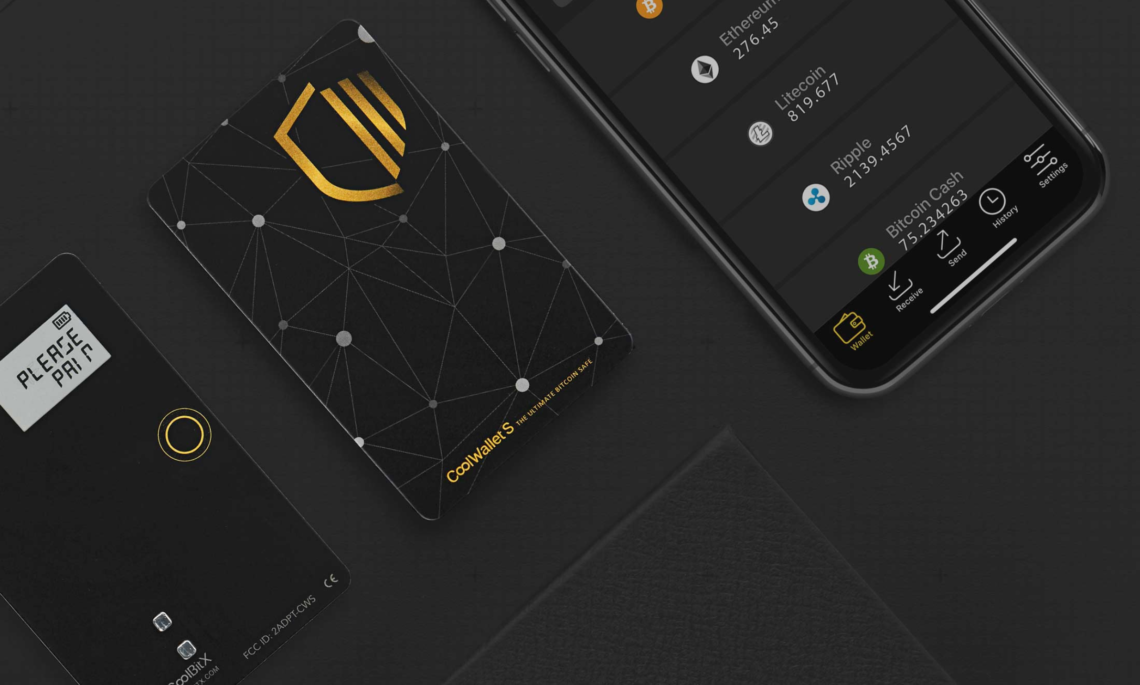
Hot storages: online wallets, mobile wallets, and desktop wallets
Let’s start things off by looking into hot storages, which includes Online wallets, Mobile wallets, and Desktop wallets.
All three of these wallets have one thing in common, and that’s the fact that they (usually) have access to the internet at all times. This is why they are called hot wallets, or hot storages, as opposed to cold storages, that are disconnected from the web at all times, except when you need to transfer your coins.
/Related
More Articles1) Web wallets
As the name suggests, web wallets are online wallets that are not only connected to the internet at all times — they exist on the internet. They usually come in the form of a website or a browser extension where you can log in and deposit your Bitcoins.
With these wallets being constantly on the web and constantly ready for making transactions, they are the most practical ones. However, they are also the most vulnerable.
If you have a wallet filled with cryptocurrency, it will not be long before it attracts hackers who want to steal said cryptocurrency. Of course, these wallets are usually tested and without major flaws — at least when it comes to some of the best ones. However, that still leaves you, and the measures of protection that you have taken.
For example, if your login credentials are easy to guess, or you use the same password and email for multiple accounts, it is enough for one of the websites that you frequent to get hacked, and hackers would be able to access all of the accounts that use the same login credentials.
You need to make complex passwords that would be difficult to guess and enable Two-Factor Authentication (2FA) that these wallets often offer in order to keep your money safe. Other than that, you should consider a different type of wallet for your main stash, and use online wallets only for the money you need to move in and out of exchanges quickly, for the purposes of trading.
Pros of web wallets:
- Always available for trading
- Easy to use from your browser
- You can use it for free
Cons of web wallets:
- The danger of being hacked is present constantly
- You should not store large amounts of funds in it

2) Mobile wallets
Once again, the name says it all — Mobile wallets are wallets that come in the form of an app for your smartphone. These are also very practical, as most of us have our smartphones with us at all times. The wallet is ready to go as soon as you connect to a Wi-Fi, or use data for accessing the internet.
However, they come with their own flaw, which pretty much once again revolves around constant internet access. Even worse. If you connect to a public Wi-Fi in order to trade crypto, as many who like to trade on the go tend to do, you can expose yourself to other users of the same public hotspot.
And, since you can never know who else is connected, you may easily expose your money to hackers, who could infect your phone with malware and steal your information and cryptocurrencies.
You can protect this wallet by using a VPN, which will hide your data traffic and encrypt it. If you use some of the best VPN software, you should, in theory, be safe even when using public hotspots. However, for your own safety, it would be best to only trade when you use trusted networks.
On the plus side, this wallet can also act as cold storage, but only if you use it on a separate smartphone that you will always keep disconnected from the web, except when you wish to trade your coins.
Pros of mobile wallets:
- Always available as long as you have an internet connection
- It can be used as cold storage on a spare smartphone
- You can trade on the go
Cons of mobile wallets:
- In danger of being hacked if you use it on a phone that is always connected to the web
- You need to use additional security software to protect your connection

3) Desktop wallets
The third and last type of online wallet is a desktop wallet, which you can use on your PC in the form of a desktop app. These are rather similar to mobile wallets, apart from the fact that you are using them on a computer, instead of on your phone.
The internet connection is, once again, a big issue with them, but you can protect them by using strong anti-virus and anti-malware software, as well as a VPN to hide your traffic from anyone who might think of conducting surveillance.
And, if you use them on a laptop that you can spare, you can also use this wallet as cold storage, and only connect to the web when you wish to trade or send a payment to someone. If you use them on your main device, one that is (presumably) always connected to the internet, you are putting your funds at risk, as explained before.
Pros of desktop wallets:
- Easy to use
- Always ready as long as you are connected to the internet
- Plenty of wallets to choose
- It can act as cold storage on a disconnected device
Cons of desktop wallets:
- Hackers can steal your funds if they infect you with malware
- You need several types of security software to secure it
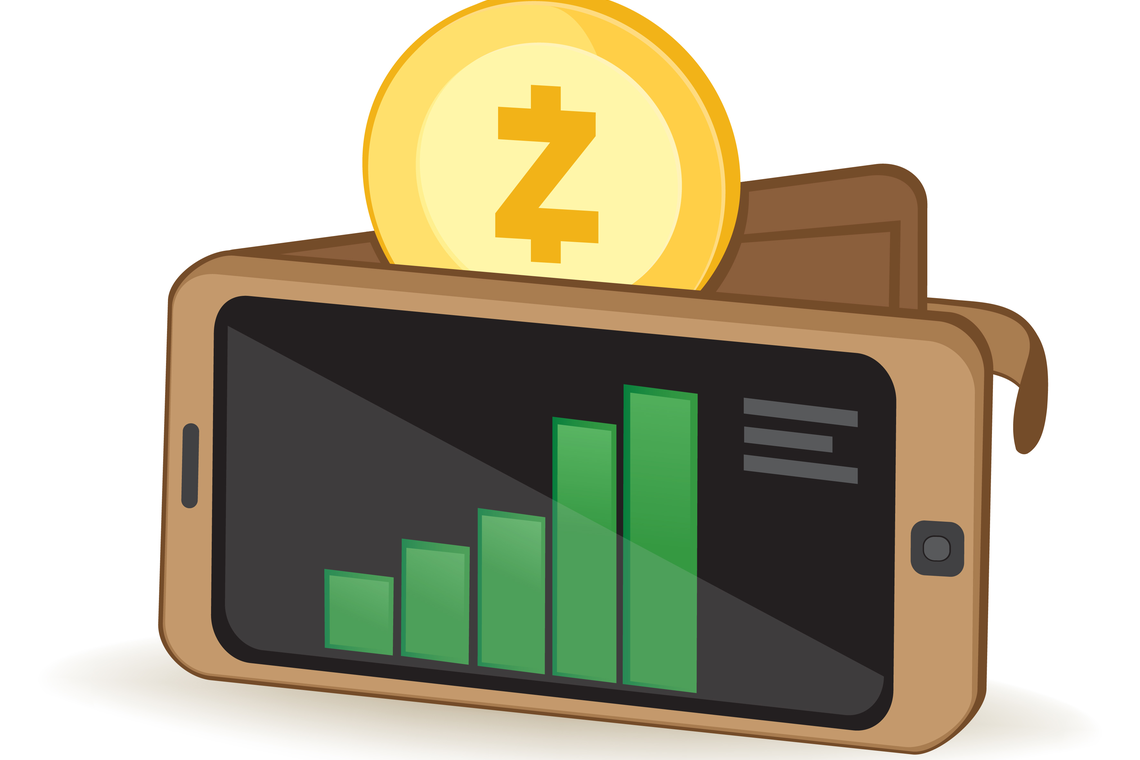
Cold storages: paper wallet vs. hardware wallet
Now for the second group, which includes cold storages: paper wallets vs. hardware wallets.
The first thing that stands out when it comes to these wallets is the fact that they are not constantly connected to the web. This is why they are called ‘cold’ wallets or storages. Obviously, this makes them much safer, but on the negative side, they are not as practical when it comes to making transactions.
In this group, we have hardware wallets and paper wallets, so let’s see how those two types of work.
1) Hardware wallets
The first type here is a hardware wallet, which is a type of wallet that comes as a physical device. To get some idea of how these wallets look and function, think of USB sticks, which you can store files on, and then simply remove them from your computer.
Hardware wallets work the same, except instead of storing files, you can use the built-in software to store your cryptocurrency. The rest works pretty much the same, and they are considered extremely safe because you can carry them with you and only connect them when you need to make a payment.
Of course, the downside to this approach is the fact that you cannot just send payments instantly, as you can with your mobile wallet, for example. Instead, you need to have a computer, and one with internet access, at that.
In other words, these are perfect for keeping your money safe, but not that great for trading or making payments on the go.
Pros of hardware wallets:
- You can safely store Bitcoin on USB
- Hardware wallets are among the safest wallets out there
- You can carry them with you and always know that your money is safe
Cons of hardware wallets:
- You need to pay to get the physical wallet
- They are not as practical and efficient when it comes to transferring money
- You need to be careful not to lose them or have them stolen
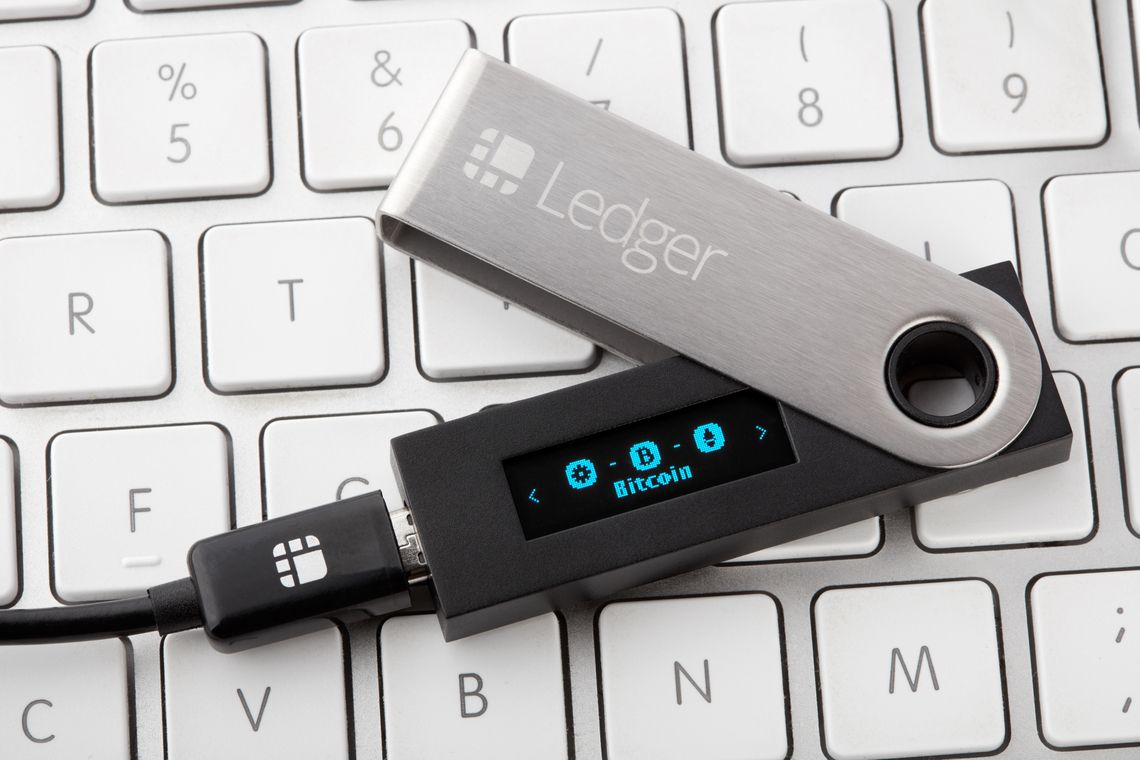
2) Paper wallets
The last type is a paper wallet, and once again, the name says it all. This wallet is simply a piece of paper on which users can print their private keys and public addresses. After that, they can start transferring money and send Bitcoin from a paper wallet.
This type of wallet is usually considered the safest. However, it should be noted that it is not for everyone. First of all, you need to keep it safe, like any other wallet, and that is especially true for HODLers or people who tend to store their funds and leave them be for a long period.
That means that you need to find a safe place for it, but also keep it from the elements, as you can’t afford the paper to get damaged.
It is also somewhat technical, which might be a problem for users that are less tech-savvy. The crypto industry is not the easiest one to get into even with your typical hot wallet that already looks much like PayPal. Adding extra complications is likely not something that many would desire to do.
Pros of paper wallets:
- It is extremely safe
- You can have it with you or store it in a safe place
- You don’t have to pay for software
- Your funds are impossible to steal via hacking attacks
Cons of paper wallets:
- It is a bit technical
- It is not as practical and as easy to use as software wallets
- You need to find a safe place to store it
- It can easily be damaged if you are not careful

Best Bitcoin wallets for different systems
Lastly, let’s talk about the best Bitcoin wallets for different systems. While wallets used to only be available for a few operating systems back in the early days, we now have great wallets available for all platforms and systems.
With that in mind, here are some of the best options.
Best Bitcoin wallet for iPhone
There are plenty of great wallets that you can use on your iPhone (or iPad), but one that is commonly considered the best is Bread, previously known as BreadWallet. This is a digital Bitcoin wallet that you can use on your mobile devices, with a very intuitive interface that is easy to understand even for first-time users.
BreadWallet
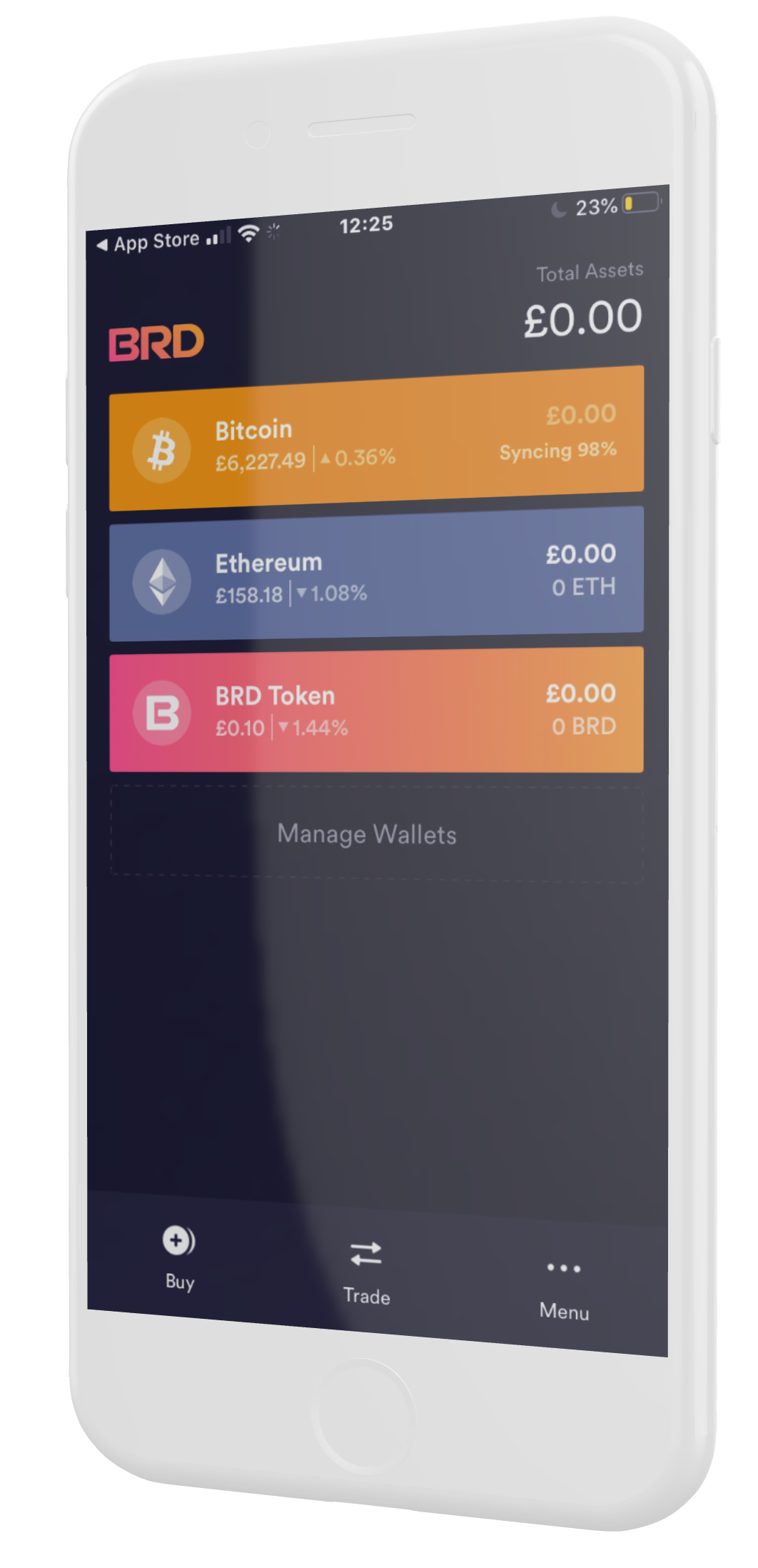
The wallet can be obtained for free on Apple App Store, and the only thing you will need to pay is the fees for your Bitcoin transactions. As explained, the fees can vary based on the priority of your transaction.
However, you can also buy Bitcoins from the wallet itself, and there will also be certain fees, although these are applied by your bank or another financial institution that is handling your money transfer.
However, Bread is pretty good in terms of security and privacy, and as long as you take care of your login details, you should be safe with it. It won’t store private keys in its own servers, so you will be the only one with access to your funds.
Pros of BreadWallet:
- Very user-friendly
- It is easy to set up and create an account
- It doesn’t require additional verification
- It has a unique security measure that keeps the app safe from vulnerabilities
- Protects user privacy
Cons of BreadWallet:
- Lacks 2FA
- No multi-signature transactions
Best Bitcoin wallet for Android
Next up, let’s take a look at the best Bitcoin wallet for Android. Our top choice here is Coinomi, which is a very popular and very lightweight HD wallet for Bitcoin. However, it also supports other cryptocurrencies, which is great for those who wish their investment portfolio to be diverse, and don’t want to have to use many different wallets.
Coinomi
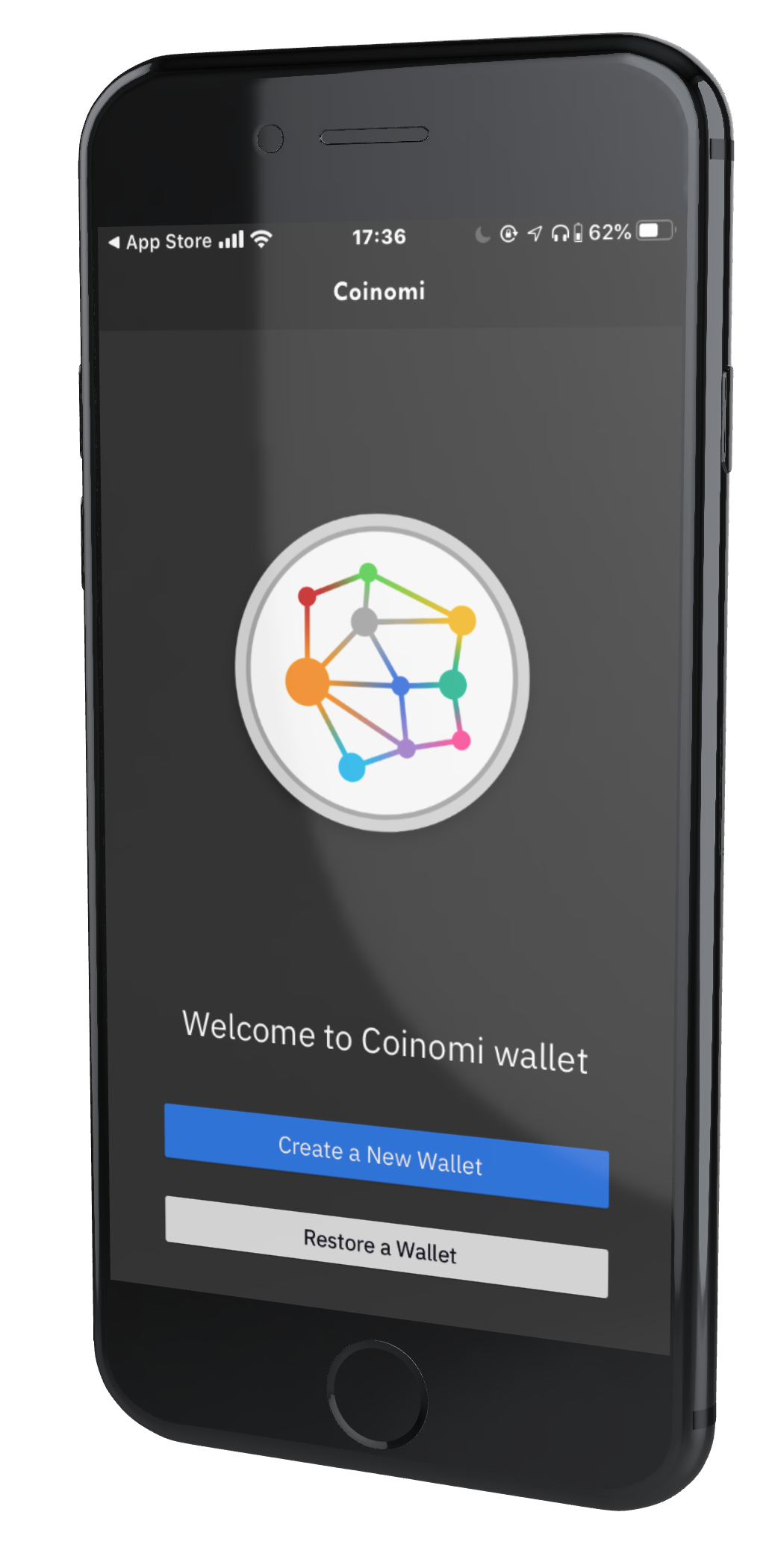
Coinomi is very safe thanks to the fact that it allows you to control your own private keys. However, that also means that you are in charge of your security.
With it, you get support for as many as 507 different crypto assets, and this number might potentially rise even further in the future. It also has great additional protection and other features, such as PIN code protection, paper wallet sweep feature, QR code support, and more.
Meanwhile, it doesn’t have any fees and is completely free of charge. That, of course, doesn’t cancel out mining fees that you need to pay to the blockchain itself, for having your transaction processed.
Lastly, Coinomi is one of the few wallets that support Bitcoin forks, such as Bitcoin Cash and Bitcoin Gold, in addition to Bitcoin itself, all in the same wallet.
Pros of Coinomi:
- Strong security
- You handle your private keys
- No fees imposed by the wallet itself
- Integrated with several exchanges for easy crypto trading
Cons of Coinomi:
- Its code is not open source
- Not regulated
- It doesn’t have support for fiat currency
- As a mobile wallet, it is more open to malicious attacks
Best Bitcoin wallet for Windows
Our choice for the best Bitcoin wallet for Windows has to go to Electrum, as statistics say that approximately 10% of all BTC transactions happen on this wallet.
Electrum
So, Electrum is certainly popular enough, and that is no coincidence. This is a very lightweight Bitcoin wallet forWindows, although you can use it on the other popular systems as well. Not only that but even though it is a desktop wallet, the Electrum wallet is very easy to integrate with hardware wallets.
It is easy to use, although it can be a bit difficult to learn how to use it, as the wallet doesn’t do much to explain its features and how they work. It just delivers them, and it leaves it up to the user to figure them out.
As such, the Electrum wallet is great for experienced users, but not the most beginner-friendly out there. Despite this, we chose it for its security, efficiency, and popularity.
It should be noted that this is a wallet for Bitcoin, and Bitcoin alone, so it will serve you best if you are only interested in investing and trading this single coin. It also has a fee of 2mBTC flat rate, which is not too bad, plus the transaction fees that you pay to the miners.
Pros of Electrum:
- You can use it without downloading Bitcoin blockchain
- Setup is easy and fast
- Supports multi-signature wallet use
- Good level of security, It doesn’t store private keys; all transactions are signed locally
Cons of Electrum:
- Not beginner-friendly
- Not regulated
- Only offers support for BTC
Best Bitcoin wallet for Mac
Lastly, we have the best Bitcoin wallet for Mac, and here, we chose Exodus. Exodus is not Mac-specific, but it is one of the best ones out there that are compatible with macOS.
Exodus
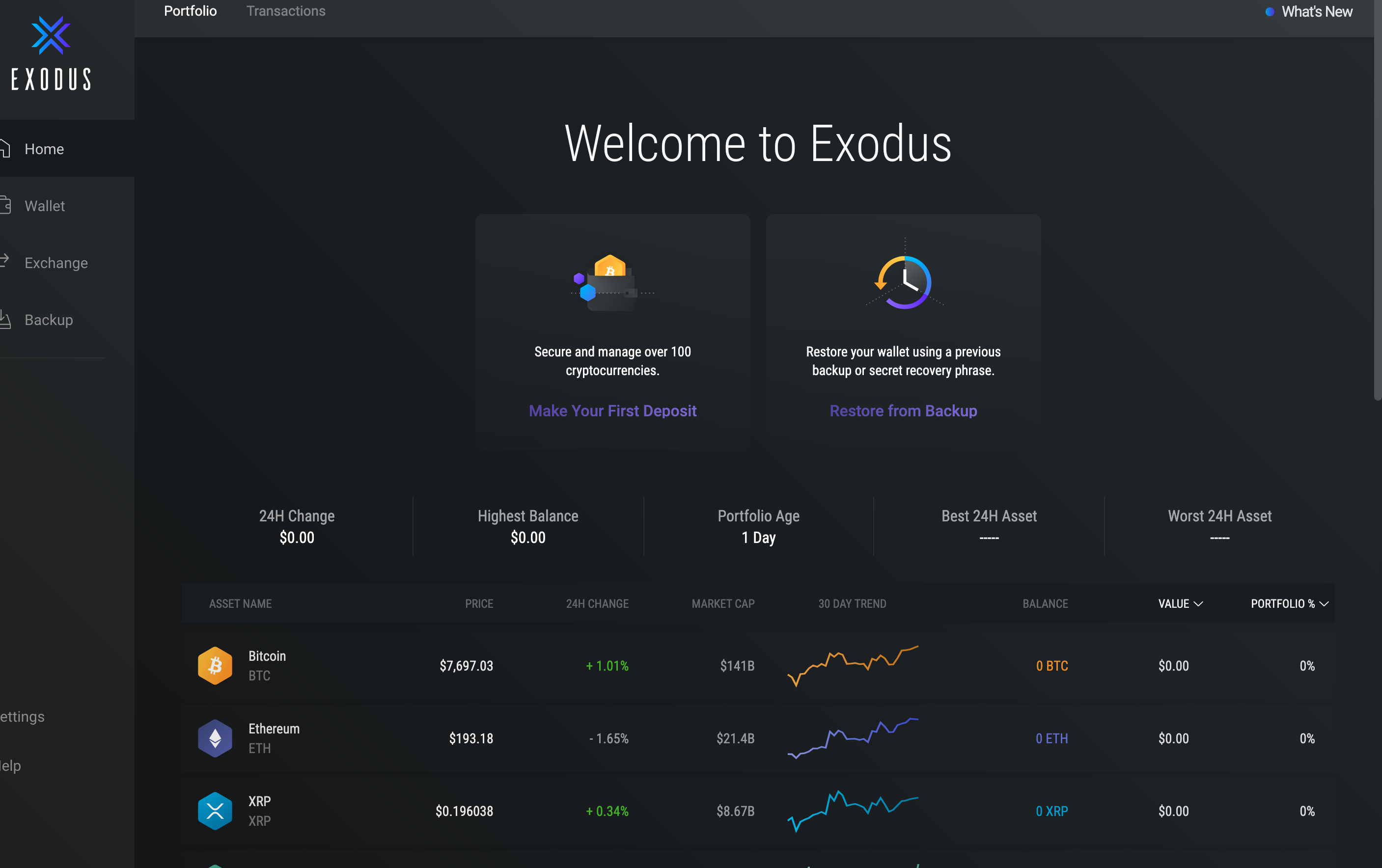
The team behind the wallet set up a goal of creating the best and most user-friendly wallet on the market, and so far, they did a pretty great job.
We specifically chose this wallet for Mac users because the team’s approach to software development is similar to what Apple does with its products. As such, it will be very familiar to macOS users. The UI itself looks very modern and beautiful, and it eliminates the boring and dry ‘geek factor.’
Of course, this is all a very useful addition to the wallet, but not the sole reason why we chose it. Exodus also stands out because it is the first multi-asset wallet for desktop that comes with integrated ShapeShift.
This means that you can use it to exchange cryptos without ever having to leave the wallet instantly. You also don’t have to create an account or surrender your personal data, which is excellent for privacy purposes.
Best of all, it supports around 100 different coins, most of which are among the most popular cryptos, so you will likely find all the coins you are looking for.
Pros of Exodus:
- Users control their private keys
- Support for 100 cryptos
- Beautiful interface
- Easy for Mac users to get into
- Offers an integrated crypto exchange
- Excellent privacy features
Cons of Exodus:
- Transaction fees are high
- Security is not as high
- Fixed transaction fees (users can’t choose what they pay, themselves)
- No support for multi-signature addresses
Final thoughts
Using Bitcoin for your payments, transactions, investments, and trades is becoming more and more popular, despite the coin’s volatility. There are plenty of Bitcoin Core wallets out there that you can opt to use, for any OS and device you can think of. Here, we have looked into some of the best options for each of the most popular devices, in addition to explaining how the wallets work and what different types you can use. All that remains is for you to pick one and start filling it with coins!
Frequently asked questions
What is a Bitcoin wallet?
How do I choose the right Bitcoin wallet?
Are Bitcoin wallets secure?
On the market for a reliable Bitcoin Wallet — GridPlus has you covered. Try it now!
Trusted
Disclaimer
In line with the Trust Project guidelines, the educational content on this website is offered in good faith and for general information purposes only. BeInCrypto prioritizes providing high-quality information, taking the time to research and create informative content for readers. While partners may reward the company with commissions for placements in articles, these commissions do not influence the unbiased, honest, and helpful content creation process. Any action taken by the reader based on this information is strictly at their own risk. Please note that our Terms and Conditions, Privacy Policy, and Disclaimers have been updated.









